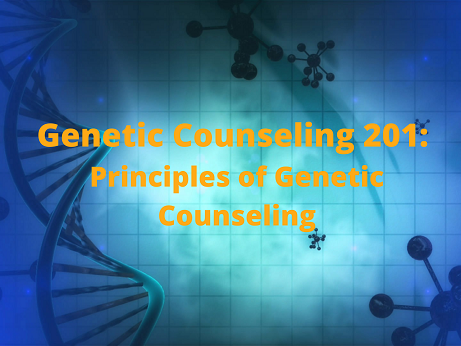Welcome to Genetic Counseling 201!

Hello everyone! I would like to welcome you to the GC 201 course. This is a 3-unit course designed to explore fundamental theories and principles of effective patient/client interviewing in genetic counseling practice. The genetic counseling student is expected to gain an appreciation on the importance of the field of genetic counseling in the provision of clinical medical genetics. Foundation knowledge and skills on the responsibilities of a genetic counselor as part of the medical genetics team are applied.
This VLE site will be our platform for remote learning. All announcement and discussion will be through this site and I would encourage you to participate in all the activities here. Readings will also be uploaded in this site so you have a handy reference.
I hope we have a good semester and let me know if you have any concerns through my email: lgdecastrohamoy@up.edu.ph.